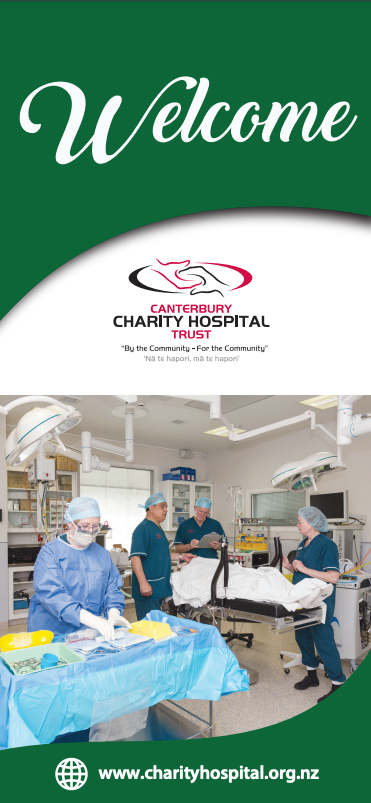A new rectal bleeding clinic has been established by the Canterbury Charity Hospital Trust in collaboration with St George’s Hospital for patients aged under 50 years.
Media release from the Canterbury Charity Hospital Trust: 12 July 2017
Christchurch hospitals and surgeons join forces to provide free clinic to help diagnose bowel cancer in younger patients
Canterbury Charity Hospital and St George’s Hospital have stepped forward to provide a free clinic for men and women under 50 with rectal bleeding; one of the main symptoms of colorectal cancer.
From this week both hospitals will be providing free theatre time on a rotating weekly basis for specialists to carry out an investigative diagnostic test called flexible sigmoidoscopy on up to seven to eight patients per session. Due to their younger age these patients are not currently being seen for isolated rectal bleeding symptoms in the public health system.
Colorectal cancer is the second most common cause of cancer death in New Zealand, claiming 1200 lives per year.
“Currently only patients over 50 with isolated rectal bleeding are being seen under the public health system as traditional risk profiling correctly assesses this older group as having the highest risk of colorectal cancer,” says Christchurch colorectal surgeon Professor Frank Frizelle. “But while older patients do make up the majority of colorectal cancer patients, international, and new New Zealand research shows clearly that an increasing number of men and women under 50 are being diagnosed with these cancers and that these patients require more timely investigation” he says.
A new Otago University and Christchurch Hospital study published this month in the British Journal of Surgery backs this up. It shows the incidence of colon cancer in New Zealand men under 50 from 1995-2012 increased by an alarming 14% per decade and the incidence of rectal cancer increased in men by 18%; while rectal cancer in women under 50 increased by 13% per decade.
Professor Frizelle says such has been the concern regarding cancer presentations in this younger age cohort that a group of city surgeons and gastroenterologists decided to approach both the Canterbury Charity Hospital and St George’s Hospital to see if they could help them fill this diagnostic need.
“By both hospitals stepping in to provide theatre time and staff to treat this under 50 group, it now allows the CDHB to concentrate on the older patients, leaving younger ones to go through this new separate assessment route” says Professor Frizelle.
The Canterbury Charity Hospital will administer the new initiative. Charity Hospital Co-Founder Professor Phil Bagshaw says city GPs are already responding positively to the new initiative, with several patients already referred for consideration.
“This is exactly the type of service we as a Charity Hospital are here to provide to deal with significant levels of unmet need in the community” says Professor Bagshaw.
Professor Frizelle says around a dozen city surgeons have so far volunteered to carry out the flexible sigmoidoscopy diagnostic treatment.
St George’s Chief Executive Greg Brooks says enough surgeons and staff have stepped up at both hospitals already to fill allocated theatre for the initiative until the end of the year.
“We’re pleased to be able to join with the Canterbury Charity Hospital to extend the existing charitable services St George’s Hospital currently provides to patients in need” says Mr Brooks. “We target most of the charitable assistance we offer to either the young to deal with conditions like glue ear, or the elderly for procedures such as cataract operations, so targeting this special age group under 50 in need of assistance will be complementary to that” he says.
The first patients were given their investigative sigmoidoscopies under the care of colorectal surgeon Mr Richard Flint at St George’s Hospital today. The next patients will be seen at the Canterbury Charity Hospital next week.
Professor Frizelle says this move is a significant sign of goodwill and collaboration from city hospitals and surgeons in joining forces to fulfil unmet patient need.

